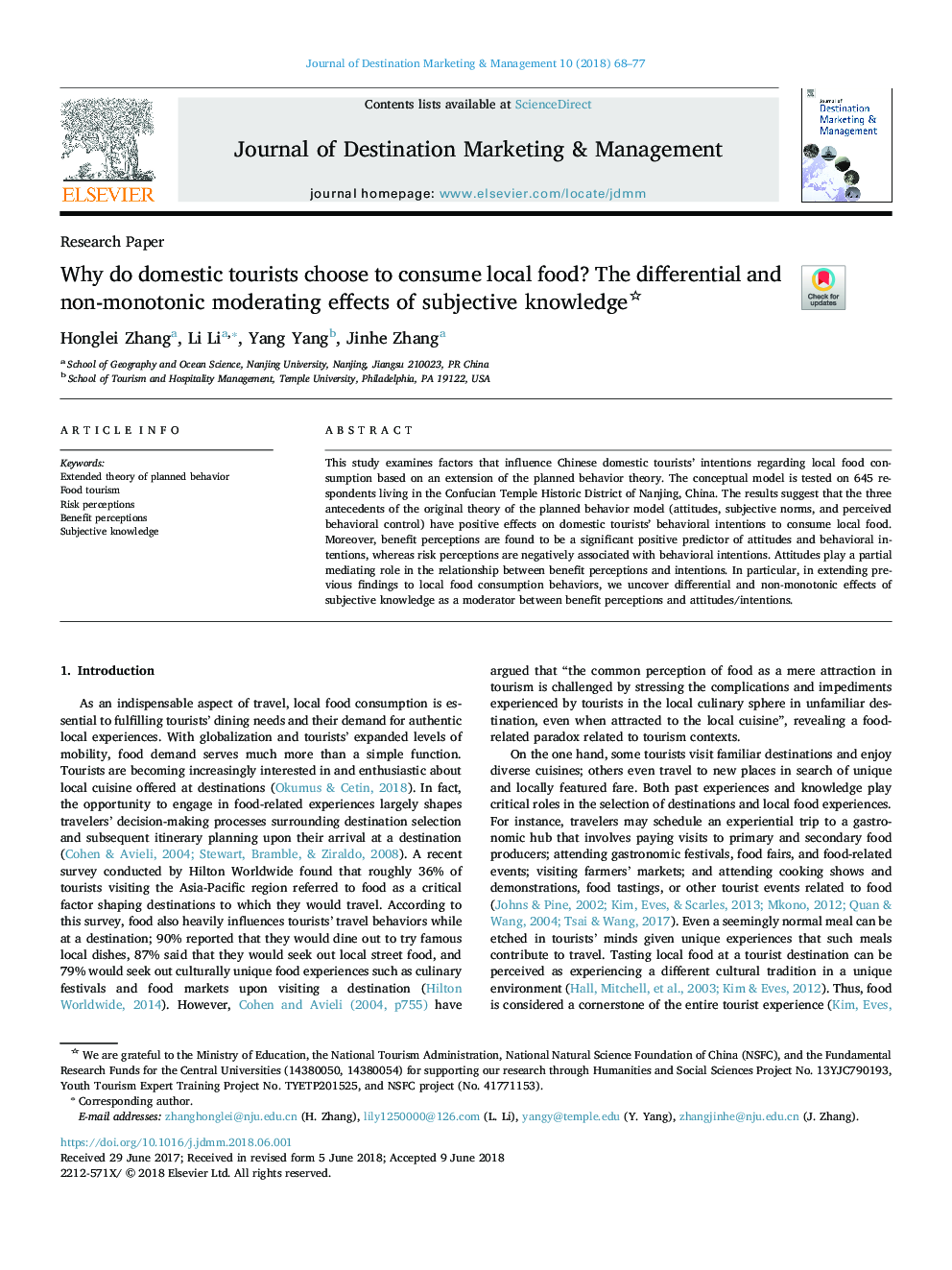| Article ID | Journal | Published Year | Pages | File Type |
|---|---|---|---|---|
| 7419251 | Journal of Destination Marketing & Management | 2018 | 10 Pages |
Abstract
This study examines factors that influence Chinese domestic tourists' intentions regarding local food consumption based on an extension of the planned behavior theory. The conceptual model is tested on 645 respondents living in the Confucian Temple Historic District of Nanjing, China. The results suggest that the three antecedents of the original theory of the planned behavior model (attitudes, subjective norms, and perceived behavioral control) have positive effects on domestic tourists' behavioral intentions to consume local food. Moreover, benefit perceptions are found to be a significant positive predictor of attitudes and behavioral intentions, whereas risk perceptions are negatively associated with behavioral intentions. Attitudes play a partial mediating role in the relationship between benefit perceptions and intentions. In particular, in extending previous findings to local food consumption behaviors, we uncover differential and non-monotonic effects of subjective knowledge as a moderator between benefit perceptions and attitudes/intentions.
Related Topics
Social Sciences and Humanities
Business, Management and Accounting
Business, Management and Accounting (General)
Authors
Honglei Zhang, Li Li, Yang Yang, Jinhe Zhang,
